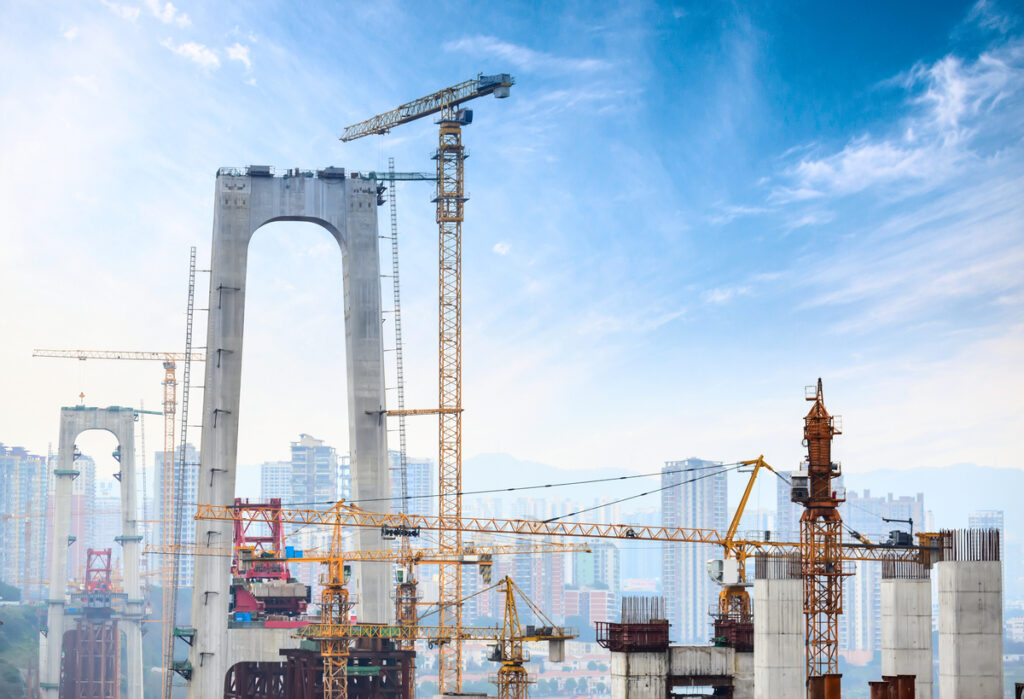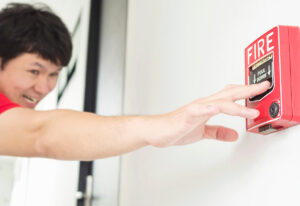Updated by Nazanin Ghodsian, 11/12/2024
Driven by a healthy economy and a strong commitment to sustainable development, Denmark’s construction industry continues to be a major growth engine, with projections indicating that it will reach $65.86 billion by 2030, growing at an annual rate of 6.1% from 2024. Prominent businesses that provide knowledge about sustainable building techniques, infrastructure, and urban development include Aarsleff Holding, MT Højgaard, Ramboll, and Saint-Gobain.
Denmark’s transition to green techniques has a significant impact on the country’s construction industry. The usage of green building techniques and digital construction management technologies is growing, in line with the green transition plans of the Danish government. Businesses use eco-friendly products, technology, and strategic alliances to solve issues including labor shortages and fluctuating material costs.
With restorations and environmentally conscious buildings driving the industry, future trends are expected to place even more focus on energy-efficient constructions and cutting-edge digital tools. Important sectors that are backed by investments from the public and private sectors include residential, commercial, and infrastructural projects, especially those related to energy and water management.
According to this forecast, construction company in Denmark have a bright future ahead of them, which will help them develop and adjust to a sustainable future while also serving as a global model for environmentally responsible building practices.
Table of Contents
Top Construction Company in Denmark
Construction company in Denmark continues to thrive, driven by a robust economy and a focus on sustainable development. Urbanization projects, infrastructure upgrades, and a commitment to green building practices contribute to the industry’s growth. The integration of advanced technologies, such as Building Information Modeling (BIM), enhances efficiency. With a skilled workforce and stringent regulatory standards, Denmark’s construction outlook remains positive. The future promises sustained expansion as the country prioritizes resilient and eco-friendly construction, aligning with global trends towards sustainability and innovation. Here’s the list of top construction company in Denmark:
1. Aarsleff Holding
Location: Aarhus
The Aarsleff Group stands as a contracting conglomerate with diverse specialized business units, functioning collaboratively under a unified strategy and shared objective. Their concerted efforts are dedicated to the delivery of high-quality infrastructure projects and structures, with a strong emphasis on generating societal value and prioritizing sustainability.
Boasting an annual revenue surpassing DKK 18 billion, the Aarsleff Group’s international operations contribute significantly, constituting a substantial one-third of their overall revenue. Their project portfolio spans various domains, including infrastructure, climate adaptation, environmental initiatives, energy ventures, and construction projects.
On the global stage, the group assumes a market-leading role, particularly in Denmark and the Northern European countries where they extend expert services, especially in the realms of pipe renewal and ground engineering. Leveraging digital tools is a key focus, as they strive to foster more adaptable collaboration modes, enhance efficiency in construction processes, and reduce costs.
Aarsleff’s organizational culture is deeply rooted in creating value through developmental strides, transitions, and innovative initiatives. They are unwaveringly committed to assuming responsibility and actively contributing to sustainable development, undertaking inventive projects that not only benefit their business but also contribute to the betterment of the environment, climate, and society at large.
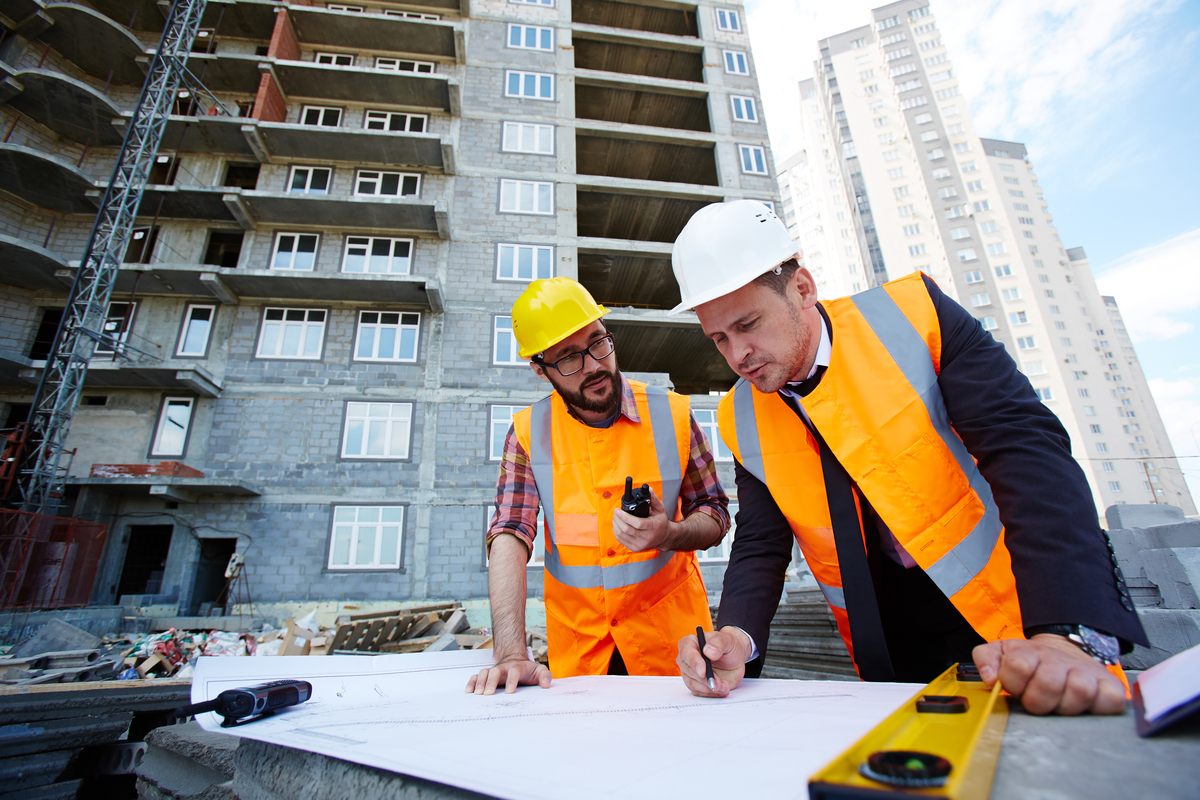
2. Ramboll
Location: Copenhagen
Founded in 1945, Ramboll stands as a distinguished Danish engineering, design, and consultancy powerhouse, boasting a formidable global presence. Over the decades, it has burgeoned into a multidisciplinary engineering, procurement, and construction (EPC) firm, leaving an indelible mark in various sectors. The company’s diverse portfolio encompasses a wide array of services and solutions, underscoring its versatility and expertise.
Ramboll’s engineering proficiency spans civil, structural, mechanical, electrical, and environmental realms, playing a pivotal role in projects ranging from buildings to expansive infrastructure. Simultaneously, the consultancy wing offers services in management consulting, strategy formulation, and organizational development, showcasing the company’s commitment to comprehensive solutions.
Environmental sustainability is a cornerstone of Ramboll’s ethos, with specialized teams engaged in projects spanning environmental impact assessments, pollution control, and the promotion of sustainable practices. In the realm of energy, Ramboll takes a proactive stance, directing efforts towards renewable energy, energy efficiency, and climate adaptation.
Architecturally, Ramboll’s creative vision comes to life through functional and aesthetically pleasing spaces, often underscored by a strong commitment to sustainability. The company’s global reach is underscored by a network of offices across the globe, strategically positioning itself to deliver tailored solutions attuned to diverse cultural and regulatory contexts. In essence, Ramboll’s journey is a testament to its unwavering commitment to excellence, innovation, and global impact.
3. Saint-Gobain
Location: Denmark
Saint-Gobain Denmark stands as a prominent player in the global construction sector, specializing in the manufacturing and distribution of materials and solutions essential to the industry. As a key subsidiary of the Saint-Gobain Group, renowned internationally for its contributions to construction, the company places a strong emphasis on sustainability and enhancing the well-being of occupants within buildings. Operating across 69 countries, the group has solidified its position as a leader in delivering innovative solutions for the construction domain.
Within Denmark, Saint-Gobain holds sway through several manufacturing entities, including ISOVER, GLASSOLUTIONS, Gyproc, Weber, and aereNmore, all integral parts of Saint-Gobain Denmark. These entities collectively contribute to the advancement and evolution of the Danish construction landscape. Saint-Gobain’s influence extends to the employment of 600 individuals in Denmark, reflecting its commitment to fostering a skilled workforce.
In essence, Saint-Gobain Denmark not only aligns with the global vision of Saint-Gobain but also plays a pivotal role in shaping the construction sector within the Danish context. Through its diverse portfolio of companies and unwavering commitment to sustainability, Saint-Gobain Denmark continues to be a driving force in providing cutting-edge materials and solutions for the ever-evolving construction company in Denmark.
4. MT Højgaard Holding
Location: Søborg
The MT Hojgaard Holding Group occupies a prominent position in the construction, civil engineering, and infrastructure sectors, catering to clients in Denmark and specific global markets from both private and public domains. Functioning as distinct entities within the MT Group, each company assumes a leading role in its specific sub-market. Danish and international projects are predominantly carried out through main contracts, design-build agreements, or Public-Private Partnerships, showcasing the group’s commitment to delivering sustainable solutions across the entire lifecycle of structures, considering economic, environmental, and social dimensions.
The member companies of the Group actively participate in the development, construction, and revitalization of buildings, engaging in main contracts, design-build arrangements, subcontracts, and modular constructions. Their clientele includes a diverse range of private and public entities, organizations, and housing associations. Throughout their endeavors, there is a strong emphasis on delivering sustainable solutions and fostering close collaborations.
The Group’s companies demonstrate equal proficiency in undertaking various projects, such as infrastructure initiatives, earthworks and piling, marine construction, site development, and shell construction. These projects are executed both within Denmark and in targeted international markets, showcasing the Group’s versatility and capability in addressing diverse challenges across different geographical locations.
5. Hilti Group
Location: Denmark
The Hilti Group, a multinational corporation specializing in delivering comprehensive solutions for the construction industry, was established in Liechtenstein in 1941 and has since extended its presence to over 120 countries. In Denmark, Hilti stands as a prominent provider of diverse construction solutions, encompassing power tools, fastening systems, and software designed specifically for construction professionals.
Within the domain of construction chemicals, Hilti’s products serve the purpose of insulating windows and filling gaps around pipes, vents, ducts, or outlets. These meticulously crafted formulations are engineered to impede the infiltration of air, dirt, sound, and water, all while meeting stringent environmental standards.
The product line includes a variety of foams, seals, and grouts, addressing both static and dynamic applications and ensuring durability and ease of application. Additionally, Hilti offers lightweight dispensing systems equipped with ergonomic grips and precise volumetric control.
For a more comprehensive understanding of the product offerings, individuals are encouraged to explore the detailed product page. Alternatively, they can reach out to their local Hilti team for personalized assistance. Hilti is dedicated to providing cutting-edge solutions that cater to the evolving needs of the construction industry.
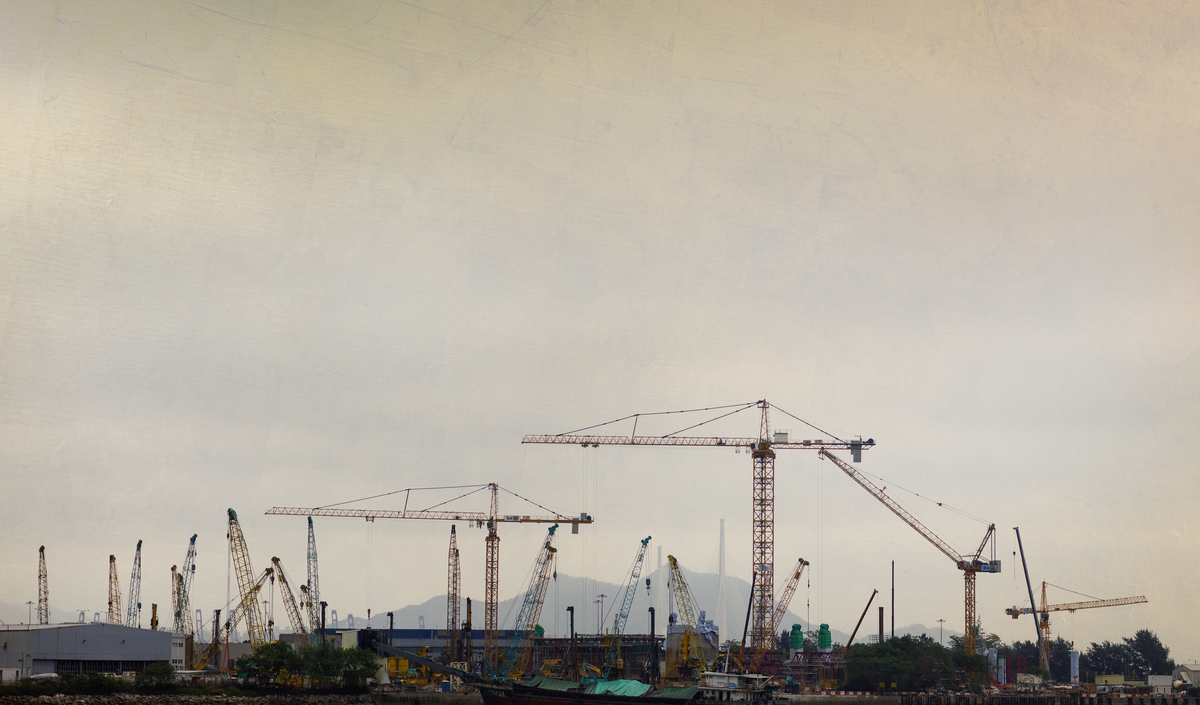
6. HusCompagniet
Location: Næstved
HusCompagniet stands out as a leading provider of single-family detached houses in Denmark, occupying a prominent position in the industry. The company’s primary focus revolves around managing the entire customer journey, starting from the initial inspiration and extending through the design phase, sales, and finally delivering customizable, high-quality detached residences to Danish consumers. Notably, these residences are skillfully constructed on-site, situated on land owned by the customers themselves.
Beyond single-family homes, HusCompagniet leverages its expertise to design, sell, and deliver semi-detached houses across Denmark. This comprehensive approach caters to the needs of both individual consumers and professional investors, with the latter group including those who choose to lease or sell the houses to eventual end-users.
A distinctive feature of HusCompagniet’s operations is its asset-light business model, a strategic framework that involves outsourcing a significant portion of construction activities to dedicated subcontractors. This approach enhances the company’s agility and adaptability, resulting in a flexible cost structure capable of promptly adjusting to varying demands and conditions. This emphasis on efficiency and responsiveness underscores HusCompagniet’s commitment to delivering top-notch housing solutions in a dynamic market.
7. SEC
Location: Allerød
Based in Allerød, Denmark, SEC stands as a prominent engineering, procurement, and construction (EPC) company with a specialized focus on power plant design, installation, and maintenance. With a commendable track record, SEC has successfully executed over 4000 MW of power projects across 70 countries, demonstrating a consistent ability to deliver complex projects within budget and ahead of schedule.
The core of SEC’s business revolves around the comprehensive lifecycle management of power plants, ensuring flawless functionality and operational excellence. This involves intricate design and engineering processes, where the company crafts tailored solutions to enhance efficiency and performance. From the initial conceptualization to meticulous planning, SEC takes a holistic approach to power plant development.
The expertise of SEC extends to the precise installation of power plant equipment, facilitating the seamless integration of crucial components. To ensure the effectiveness of their installations, the company excels in the commissioning and rigorous testing of power plants, ensuring their readiness for optimal output. SEC’s commitment to quality and precision positions them as a reliable partner in the global power industry, with a reputation for successful project delivery and operational excellence.
Challenges and Solutions
Construction companies face a myriad of challenges that can impact project timelines, budgets, and overall success. These challenges span various aspects of the construction process, from planning and design to execution and post-construction phases. However, proactive solutions can help mitigate these challenges and ensure smoother project outcomes.
One significant challenge for construction companies is the volatility of material prices. Fluctuations in the cost of construction materials can significantly impact project budgets. To address this, companies can establish strategic partnerships with suppliers, negotiate long-term contracts, and explore alternative materials that offer cost stability.
Another common challenge is regulatory compliance. Navigating complex and evolving building codes, environmental regulations, and safety standards requires diligence. Construction companies can overcome this by investing in ongoing training for their teams, staying updated on regulatory changes, and collaborating with experts to ensure compliance.
Workforce management poses its own set of challenges, from skilled labor shortages to the need for efficient project scheduling. Construction companies can address this by investing in workforce development programs, utilizing technology for project management and scheduling, and fostering a positive work culture to attract and retain skilled workers.
Technological adoption is crucial in overcoming various challenges in the construction industry. Embracing Building Information Modeling (BIM), drones, and other advanced technologies can enhance collaboration, improve accuracy in project planning, and increase overall efficiency.
Environmental sustainability is an increasingly important consideration in construction. Companies can adopt eco-friendly practices, use sustainable materials, and incorporate green building techniques to address environmental concerns and meet growing demand for sustainable construction.
Financial management and securing project financing are perennial challenges in the construction sector. Companies can mitigate financial risks by accurately estimating project costs, securing comprehensive insurance coverage, and establishing strong financial controls.
In conclusion, construction companies can navigate challenges by adopting proactive strategies, leveraging technology, prioritizing workforce development, and staying attuned to industry trends and regulations. A well-rounded approach that addresses these challenges head-on will contribute to the success and resilience of construction projects.
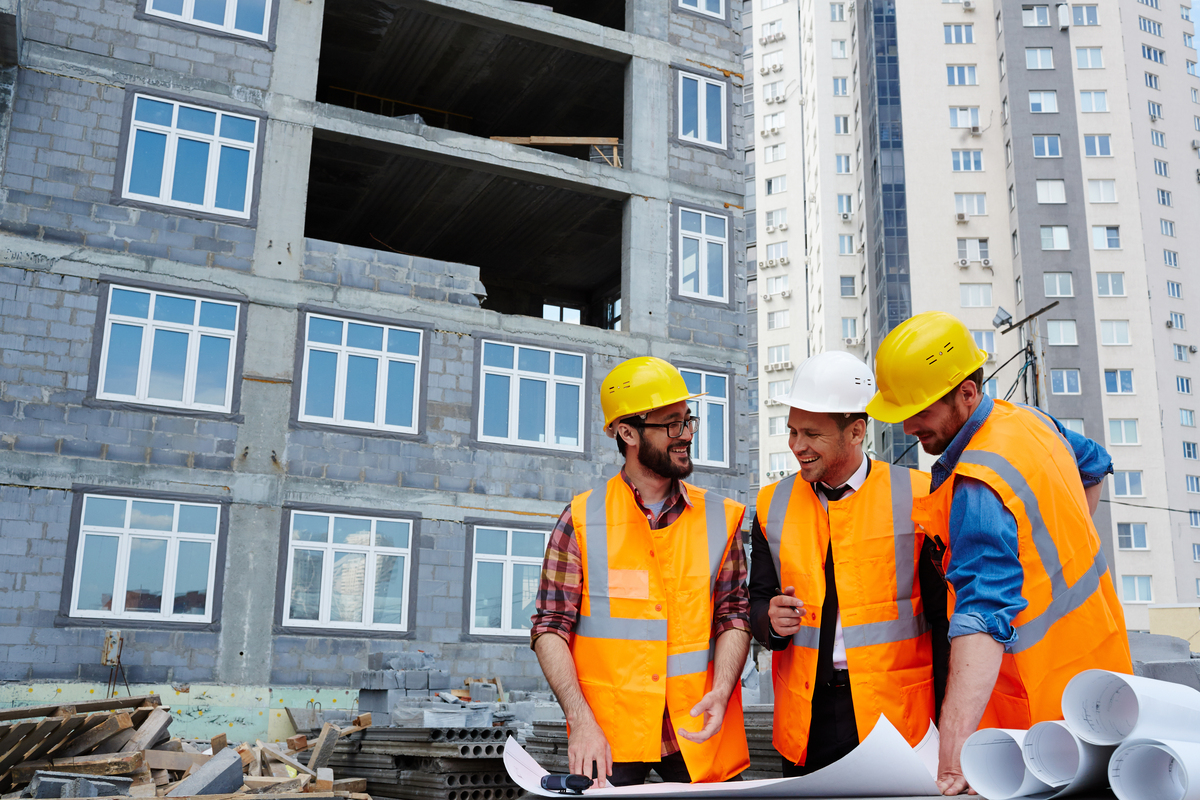
Conclusion
In conclusion, Denmark’s construction sector is currently thriving, fueled by economic strength and a dedicated focus on sustainable development. Noteworthy construction company in Denmark, including Aarsleff Holding, Ramboll, Saint-Gobain, MT Højgaard Holding, Hilti Group, HusCompagniet, and SEC, are pivotal contributors to the industry’s robust landscape. These companies demonstrate expertise in diverse areas, ranging from infrastructure and engineering to power plant design and construction solutions.
While facing challenges such as material price volatility, regulatory compliance, and workforce management, these companies have adopted strategic approaches, including partnerships, technological adoption, and sustainable practices. As Denmark continues to prioritize resilience and eco-friendly construction, the industry’s future outlook remains positive. Anticipated trends include increased integration of digital construction management tools, a growing emphasis on green building practices, and a continued focus on innovative solutions to address evolving challenges.
The listed companies exemplify excellence, innovation, and a commitment to sustainable development, contributing significantly to the dynamic construction company in Denmark. Looking ahead, the construction sector is poised for continued growth, driven by advancements in technology, a commitment to environmental sustainability, and a proactive approach to addressing emerging challenges. The future promises a construction company in Denmark that is adaptive, resilient, and at the forefront of global trends in construction and infrastructure development. For further insights into the construction sector and its leading players, articles on top construction projects, digital construction management, and the best construction site apps are recommended for exploration.
FAQs
What makes construction companies in Denmark sustainable?
- Answer: In the building sector, Denmark is renowned for its strong dedication to sustainability, emphasizing energy-efficient materials, eco-friendly procedures, and the integration of renewable energy sources. The nation also places a strong emphasis on waste minimization, carbon footprint reduction techniques, and green building certifications.
How do construction companies in Denmark implement digital transformation?
- Answer: By incorporating technology like Building Information Modeling (BIM), Internet of Things (IoT) sensors, and predictive maintenance, numerous Danish construction enterprises are embracing digital transformation. By enhancing construction precision, cutting waste, and optimizing project management, these solutions eventually promote sustainability.
What role do construction companies play in Denmark’s net-zero goals?
- Answer: Achieving net-zero emissions requires Danish building enterprises. In order to lower carbon emissions, they emphasize resource-efficient materials, energy optimization, and sustainable building practices. In order to track and enhance sustainability initiatives, many businesses also support environmental management and carbon tracking systems.
How can construction companies in Denmark benefit from advanced resource management?
- Answer: Danish construction enterprises benefit from advanced resource management by lowering their environmental impact, increasing productivity, and reducing waste. Businesses may boost productivity and use resources more sustainably during building projects by putting creative solutions into practice.
Why are predictive maintenance and IoT important in the Danish construction industry?
- Answer: An essential technology in Denmark’s construction industry is predictive maintenance, which is fueled by Internet of Things sensors. It makes construction projects more sustainable and economical by enabling businesses to track equipment performance in real-time, anticipate faults before they happen, and continue operations with little downtime.
What strategies do Danish construction companies use for waste management?
- Answer: Environmental Management Systems (EMS) are used by Danish construction businesses to reduce construction waste and execute efficient waste management solutions. These methods support recycling, lower material use, and guarantee adherence to environmental laws.
Suggested articles for reading:
Top Construction Project in Denmark
The Role of PIM in Sustainable Construction (2024)
IoT Sensors in Smart Buildings: Enhancing Efficiency and Sustainability
IIoT Technology: Top 7 Sustainable Practices It Enables
Resilient Construction; 2024 Guide
What is Eco Friendly Construction & Why is it important? 2024 Guide
What are Construction Surfaces? Your 2024 Guide
Nearly Zero Energy Buildings (NZEB); Ultimate Guide 2024
What is Digital Construction Management? Ultimate Guide
Best Construction Site Apps in 2024
Resources:
Crunch base | Hilti Group | Aarsleff Holding | Ramboll | HusCompagniet | MT Højgaard Holding | SEC
For all the pictures: Freepik

